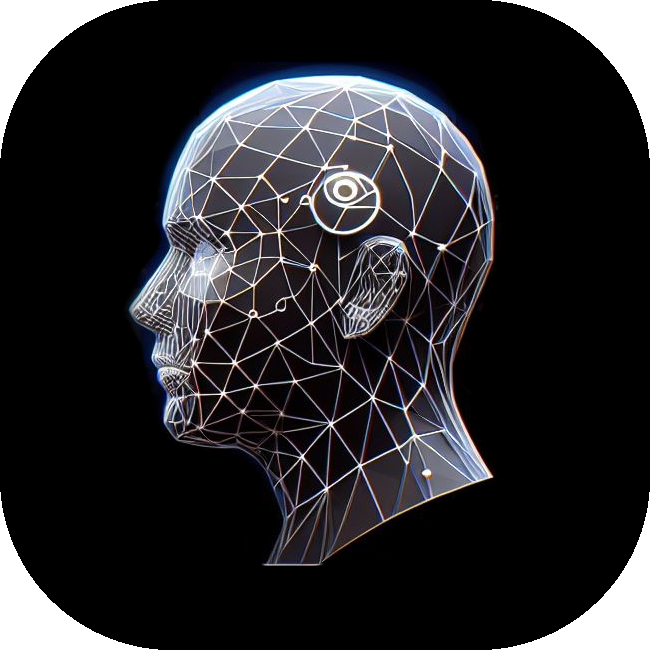Watson is not just another tech buzzword; it's a game-changer that's reshaping how businesses and individuals approach problem-solving. Imagine having a personal assistant that can analyze thousands of documents, understand complex questions, and provide precise answers in seconds. This isn't science fiction; it's IBM Watson, and it's already transforming industries worldwide. Whether you're in healthcare, finance, or education, Watson's capabilities are opening doors to new possibilities and efficiencies.
In today's fast-paced world, data is king. But what good is data if you can't make sense of it? That's where Watson steps in. This AI powerhouse can process vast amounts of unstructured data, from medical records to social media posts, and extract meaningful insights. Companies are leveraging Watson's abilities to streamline operations, enhance customer experiences, and drive innovation. But how exactly does it work, and what makes it so special?
Let's dive into the story of Watson. From its humble beginnings as a question-answering machine to its current status as a leader in cognitive computing, Watson has come a long way. In this article, we'll explore its capabilities, applications, and the impact it's having on various sectors. Whether you're a tech enthusiast, a business leader, or simply curious about AI, there's something here for everyone.
Read also:Andrea Canning The Remarkable Journey Of A Fearless Investigative Journalist
Table of Contents
- The Fascinating History of Watson
- What Makes Watson So Powerful?
- Industries Revolutionized by Watson
- Watson in Healthcare: Saving Lives
- Business Applications of Watson
- Transforming Education with Watson
- Challenges and Limitations of Watson
- The Future of Watson
- Watson vs Other AI Platforms
- Final Thoughts on Watson
The Fascinating History of Watson
Back in the day, AI was more of a dream than a reality. But IBM had bigger plans. In 2006, a team of researchers started working on a project that would eventually become Watson. The goal was simple yet ambitious: create a machine that could understand natural language and answer complex questions. Fast forward to 2011, and Watson made its debut on Jeopardy!, a popular quiz show. It didn't just compete; it crushed the competition, beating two of the show's best human players.
But how did they pull it off? The secret lies in Watson's ability to process natural language. Unlike traditional computers that rely on structured data, Watson can understand and interpret unstructured data, like text, images, and even audio. This breakthrough opened the door to countless possibilities, and IBM knew they were onto something big. Since then, Watson has evolved into a versatile platform with applications across various industries.
From Jeopardy! to Enterprise Solutions
After its Jeopardy! triumph, Watson quickly moved from the spotlight to the boardroom. IBM realized the potential of this technology and began developing enterprise solutions. Today, Watson is used by companies worldwide to tackle complex problems, from diagnosing diseases to predicting market trends. Its evolution from a quiz-show champ to a business powerhouse is nothing short of remarkable.
What Makes Watson So Powerful?
Watson isn't just another AI tool; it's a cognitive computing system that can think, learn, and adapt. Here's what sets it apart:
- Natural Language Processing (NLP): Watson can understand and interpret human language, making it easier to interact with users.
- Machine Learning: It continuously learns from new data, improving its accuracy and performance over time.
- Data Analysis: Watson can process vast amounts of structured and unstructured data, extracting valuable insights in real-time.
- Customization: The platform can be tailored to meet the specific needs of different industries and use cases.
These capabilities make Watson a versatile tool that can be applied to a wide range of scenarios. Whether you're looking to improve customer service, optimize supply chains, or enhance research capabilities, Watson has got you covered.
Industries Revolutionized by Watson
Watson's impact extends far beyond the tech world. Here's a look at some of the industries where it's making waves:
Read also:Diddys List Of Artists The Ultimate Guide To His Starstudded Roster
Healthcare
In healthcare, Watson is helping doctors make more informed decisions. By analyzing patient data, medical records, and research papers, it can provide personalized treatment recommendations. This not only improves patient outcomes but also reduces costs for healthcare providers.
Finance
Financial institutions are using Watson to detect fraud, manage risk, and improve customer service. Its ability to process large volumes of data quickly makes it an invaluable asset in this fast-paced industry.
Retail
Retailers are leveraging Watson's insights to enhance customer experiences. From personalized shopping recommendations to inventory management, Watson is helping businesses stay competitive in an ever-changing market.
Watson in Healthcare: Saving Lives
One of the most exciting applications of Watson is in healthcare. Imagine a world where doctors have access to all the latest medical research at their fingertips. That's the reality with Watson Health. By analyzing millions of medical records and research papers, Watson can identify patterns and insights that might otherwise go unnoticed.
For example, Watson can help doctors diagnose diseases more accurately and develop personalized treatment plans. In cancer research, it's assisting scientists in identifying potential drug candidates and predicting patient responses to different therapies. The possibilities are endless, and the impact on patient care is already being felt around the world.
Business Applications of Watson
Businesses are finding innovative ways to use Watson to gain a competitive edge. Here are a few examples:
- Customer Service: Watson-powered chatbots are revolutionizing customer support, providing instant answers to common questions and freeing up human agents to handle more complex issues.
- Supply Chain Optimization: By analyzing market trends and historical data, Watson helps companies predict demand and optimize their supply chains.
- Marketing: Watson's analytics capabilities enable businesses to better understand their customers and tailor their marketing strategies accordingly.
These applications are just the tip of the iceberg. As businesses continue to explore Watson's potential, we can expect to see even more innovative use cases emerge.
Transforming Education with Watson
Education is another sector where Watson is making a difference. By analyzing student performance data, Watson can identify areas where students are struggling and provide personalized learning recommendations. This approach not only improves learning outcomes but also makes education more accessible to students with diverse needs.
Institutions are also using Watson to streamline administrative tasks, such as admissions and student support. By automating these processes, educators can focus more on teaching and less on paperwork. The result is a more efficient and effective education system that benefits both students and teachers.
Challenges and Limitations of Watson
While Watson is undoubtedly a powerful tool, it's not without its challenges. Here are a few to consider:
- Cost: Implementing Watson solutions can be expensive, making it less accessible to smaller businesses and organizations.
- Complexity: Setting up and maintaining a Watson system requires specialized skills and expertise.
- Data Privacy: As with any AI platform, there are concerns about data security and privacy when using Watson.
Despite these challenges, many organizations find that the benefits of using Watson outweigh the drawbacks. With proper planning and execution, these challenges can be managed effectively.
The Future of Watson
As AI continues to evolve, so too will Watson. IBM is constantly working to improve the platform, adding new features and capabilities to keep it at the forefront of cognitive computing. In the coming years, we can expect to see even more advanced applications of Watson across various industries.
One area of focus is edge computing, where Watson's processing power is brought closer to the data source. This will enable faster and more efficient data analysis, opening up new possibilities for real-time decision-making. Additionally, IBM is exploring ways to make Watson more accessible to small and medium-sized businesses, democratizing access to AI technology.
Watson vs Other AI Platforms
When it comes to AI platforms, there's no shortage of options. So, how does Watson stack up against the competition? Here's a quick comparison:
- Google AI: Known for its strong focus on machine learning and neural networks, Google AI is a powerful competitor to Watson.
- Amazon Web Services (AWS): AWS offers a wide range of AI services, including machine learning and natural language processing, making it a strong contender in the AI space.
- Microsoft Azure AI: With its emphasis on cloud computing and integration with other Microsoft services, Azure AI is another formidable rival.
While each platform has its strengths, Watson stands out for its cognitive computing capabilities and its ability to process unstructured data. This makes it particularly well-suited for applications in healthcare, finance, and other data-intensive industries.
Final Thoughts on Watson
Watson has come a long way since its Jeopardy! days, evolving into a versatile AI platform with applications across various industries. Its ability to process natural language, learn from data, and adapt to new situations makes it a powerful tool for businesses and organizations looking to gain a competitive edge.
Of course, there are challenges to consider, such as cost and complexity. But with proper planning and execution, these hurdles can be overcome. As AI continues to evolve, Watson will undoubtedly play a key role in shaping the future of technology and business.
So, what do you think? Are you ready to embrace the power of Watson? Share your thoughts in the comments below, and don't forget to check out our other articles for more insights into the world of AI and technology.


